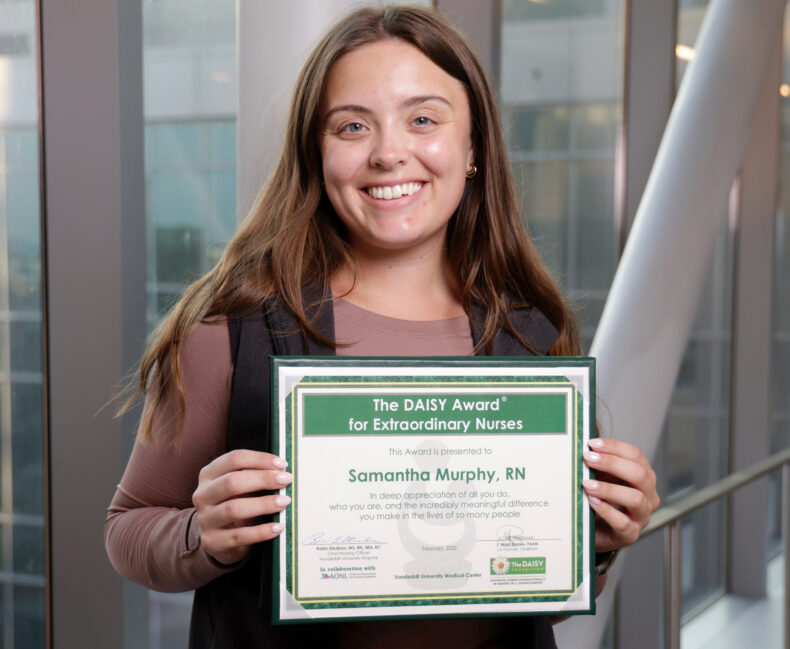Improvements to the web-based My Health at Vanderbilt, Vanderbilt Health’s online patient portal, have made it easier for health care teams — including patients and their designated health agents — to add and access an End of Life Care Plan to guide medical decision making.
“Every patient’s decision regarding end of life is very personal, and the clinical care plan needs to be tailored, keeping the patient’s goals front and center,” said Shubhada Jagasia, MD, MMHC, chief of staff, Vanderbilt University Adult Hospital and Clinics. “These decisions need to be made at the right time during the care of the patient and documented in the electronic medical record. My Health at Vanderbilt has addressed this unmet need. This need has been accentuated during the COVID pandemic, as limited hospital visitation policies and lack of consistent family presence at the patient’s bedside makes reliable knowledge of the patient’s end-of-life wishes even more important.”

Through an End of Life Care Plan, also known as an Advance Directive, an individual names a health agent, an individual they want to make their health care decisions if they are unable to do so, and clearly spells out their choices for specific health care interventions.
“This is something that has remained a priority for our community and our leadership at the Medical Center,” said Trent Rosenbloom, MD, MPH, associate professor of Biomedical Informatics, who directs My Health at Vanderbilt. “We take this very seriously and have been working on this steadily.
“We are currently refining several aspects of the End of Life Care Plan feature, including making it even easier for patients to find. We are also making the materials we have that guide patients through what they need to consider when developing an End of Life Care Plan easier to understand and more personalized to our community.”
When accessing electronic health records (EHRs), VUMC care teams are prompted to ask both hospitalized patients and those at outpatient clinics whether they have completed an End of Life Care Plan or Advance Directive. If the answer is no, patients are instructed on how to complete and upload this information into My Health at Vanderbilt. Clinical providers can also scan and upload these documents for their patients.
VUMC teams caring for patients with COVID-19 huddle together daily to review patient care, including checking for Advance Directives and the designation of health care agents. Acute patient care takes precedence, but getting this vital information into a patient’s EHR is an important part of those huddle conversations, said Mohana Karlekar, MD, director of VUMC Palliative Care and a regular member of the COVID-19 huddle.
“Now more than ever, it’s important for us to ask these questions, and for patients and families to talk among themselves now about their wishes related to health care interventions and end-of-life care,” said Karlekar. “Families need to know what their loved one wants so they can advocate for them appropriately.”
Members of the VUMC Patient Education Office worked with My Health at Vanderbilt developers to simplify both the language of the End of Life Care information and its accessibility. VUMC Interpreter Services worked with developers to make My Health at Vanderbilt viewable in Spanish by selecting that option (in blue text, at top right), and once that view is selected, the End of Life Care Plan is available in Spanish as well.
“The improvements that have been made to these end-of-life care plans — from putting them into plain language to making them easier to access through My Health at Vanderbilt — reflect Vanderbilt Health’s overall commitment to fostering a health-literate organization,” said Lori Anne Parker-Danley, PhD, director of Patient Education. “Creating plain language materials that are easy for patients to read, understand and use is always important. This is especially true when we’re talking about end-life care planning, which carries such emotional weight.”
Once logged in to My Health at Vanderbilt, individuals can access the “End of Life Care Plan” tab in two locations. It is accessible with one click on the right side of the screen. It is also under the “My Record” header. At that point, on the right-side menu, under “Completing an End of Life Care Plan” a link is provided to download a copy of the Tennessee Advance Directive for Health Care.
To be legal, the completed document must be signed in the presence of either two witnesses who will also sign the document or notarized by a notary public. An individual’s designated health agent cannot be a witness, and at least one of the witnesses cannot be a relative or a beneficiary of the individual’s estate.
Once signed by witnesses or notarized, the End of Life Care Plan should then be uploaded as a PDF to become an official part of the individual’s electronic medical record (EMR). Once uploaded, the document is easily accessible to the individual’s care team and will guide decisions related to medical care if an individual becomes unable to make those decisions. If anyone has trouble uploading their document, they can provide a paper copy to their care team so it can be scanned and added to their medical record.
In an effort to provide additional information to both the individual’s loved ones and their care team, two short questionnaires have also been added to the End of Life Care Plan information in My Health at Vanderbilt. The short surveys guide individuals through questions to help them identify the things in life that matter most to them. These narrative answers can be useful for families and care teams in making care decisions, particularly in during disease or age progression.











